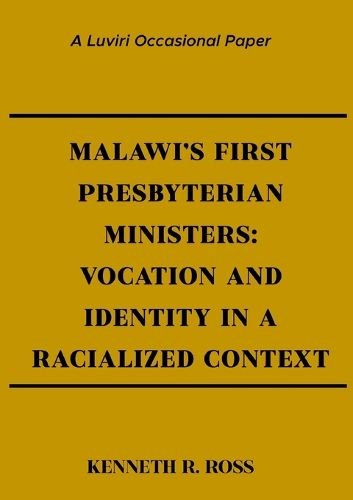Readings Newsletter
Become a Readings Member to make your shopping experience even easier.
Sign in or sign up for free!
You’re not far away from qualifying for FREE standard shipping within Australia
You’ve qualified for FREE standard shipping within Australia
The cart is loading…






This title is printed to order. This book may have been self-published. If so, we cannot guarantee the quality of the content. In the main most books will have gone through the editing process however some may not. We therefore suggest that you be aware of this before ordering this book. If in doubt check either the author or publisher’s details as we are unable to accept any returns unless they are faulty. Please contact us if you have any questions.
Malawi's first two Presbyterian ministers, Harry Kambwiri Matecheta and Stephen Kundecha, were ordained in March 1911. Ecclesiastically, this made them fully equal with their European fellow-ministers. There were, however, subtle and not-so-subtle racial codes that reminded them that they were expected to occupy a subordinate position. This Occasional Paper explores how they discovered their identity and vocation in a challenging context.
$9.00 standard shipping within Australia
FREE standard shipping within Australia for orders over $100.00
Express & International shipping calculated at checkout
This title is printed to order. This book may have been self-published. If so, we cannot guarantee the quality of the content. In the main most books will have gone through the editing process however some may not. We therefore suggest that you be aware of this before ordering this book. If in doubt check either the author or publisher’s details as we are unable to accept any returns unless they are faulty. Please contact us if you have any questions.
Malawi's first two Presbyterian ministers, Harry Kambwiri Matecheta and Stephen Kundecha, were ordained in March 1911. Ecclesiastically, this made them fully equal with their European fellow-ministers. There were, however, subtle and not-so-subtle racial codes that reminded them that they were expected to occupy a subordinate position. This Occasional Paper explores how they discovered their identity and vocation in a challenging context.